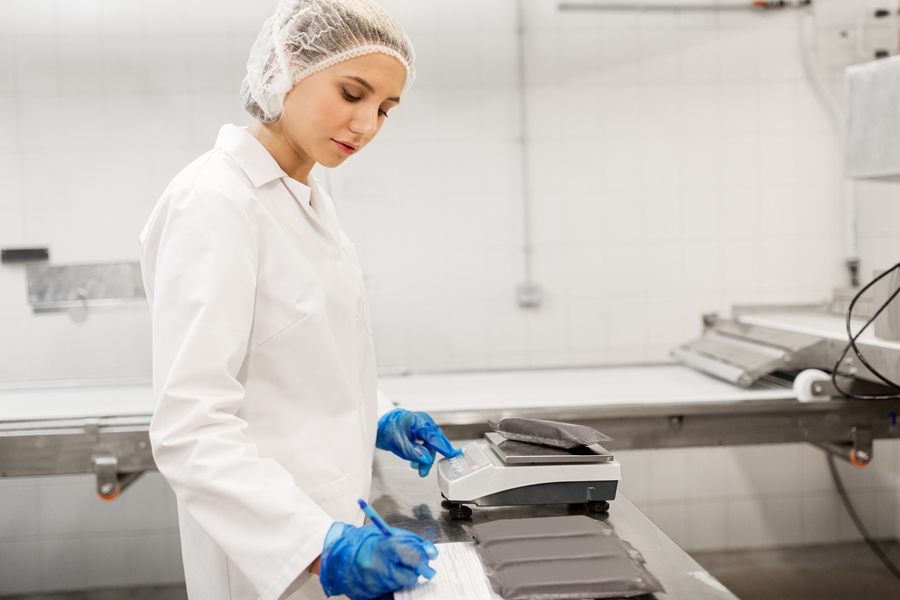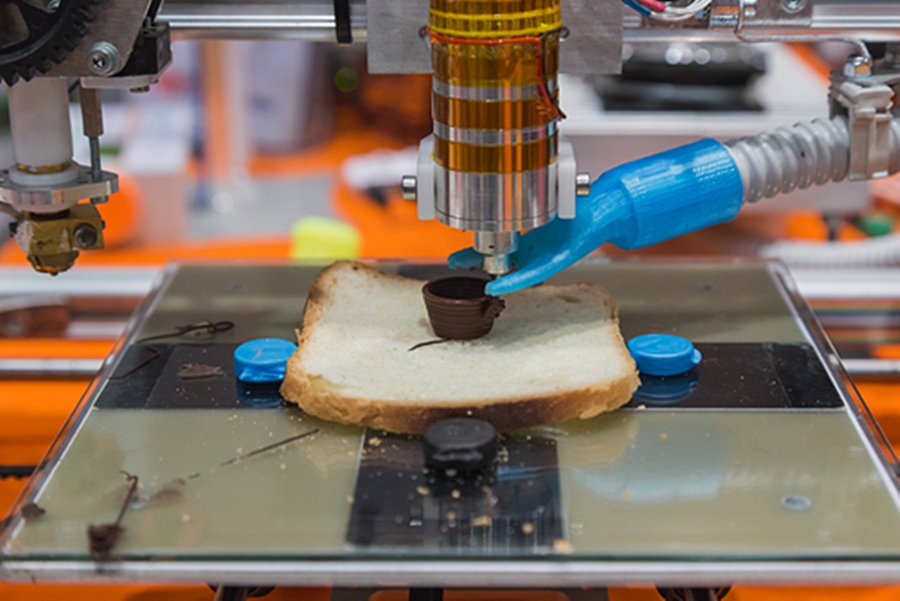Food Safety Solutions for Edible Cannabis: Contamination, Sourcing and SOPs
By Kimberly Stuck
Success for most food manufacturers stems in part from their commitment to food safety and this is no less true for those who specialize in cannabis food products. At this time, there are no official federal regulations for the manufacture of cannabis food products and, as a result, cannabis companies are at a higher risk of unknowingly producing unsafe products. The most vulnerable populations in the world use cannabis as medicine, and companies owe it to their customers/patients to produce a safe product.
In Denver, where cannabis possession and use are legal, some local public health departments have taken on the responsibility of regulating the safety of cannabis food products, although many counties don’t regulate cannabis product facilities at all. As a result, a huge percentage of products for sale in dispensaries have never been through any kind of government safety audit. This means that it’s critical for dispensary owners to vet the manufacturers of the cannabis food products they sell: they need to know if their local health department regulates them, if any safety audits are being performed—and, if so, by whom—and how frequently. It’s expected that, eventually, all local public health departments will regulate cannabis. But, for now, it’s up to manufacturers to be proactive and find out what the local health department regulations are, hire a food safety professional to help implement a HACCP-based food safety system, pay attention to recalls, and learn from the mistakes of others.
Contamination is a serious issue with cannabis, and the usual food safety culprits are common: listeria, Salmonella, E. Coli, Noro virus, and Hepatitis A.
Contamination and a Cannabis Company
Contamination is a serious issue with cannabis, and the usual food safety culprits are common: listeria, Salmonella, E. Coli, Noro virus, and Hepatitis A. But cannabis food product manufacturers must also be wary of pesticide contamination (with both approved and unapproved product formulations), mycotoxins produced by molds on the plants, and the possibility of Botulism toxin growing in products like tinctures. Many of these issues can be prevented by using kill steps involving heat, thorough testing, and by implementing solid preventive measures.
The Denver health department notes that cannabis oil is a potentially hazardous food that requires refrigeration if a proper spore-killing heat step hasn’t taken place. Many counties in Colorado are now requiring a shelf stability approval proving that cannabis oil has been through proper heat steps before it is allowed to be sold at room temperature. If this step can’t be verified, the health department requires the company keep all oil and products refrigerated, and labelled, so it’s clear that this is necessary.
A company that is producing edible cannabis products must conduct extensive research regarding the source of the ingredients they intend to use, confirming that these ingredients were processed in a safe environment. Food-grade flavoring oil is different from an aromatic essential oil; buying cannabidiol hemp CBD oil from a company that is regularly inspected and has a sourcing approval is different from buying CBD oil that is manufactured in someone’s basement. Each choice you make affects the safety of the product, and the consequences of making the wrong choice could affect an entire business.
The Safety of Cannabis Products
Developing Standard Operating Procedures (SOPs) is challenging for many food companies, but it’s crucial nonetheless. A recipe may be solid, but it must also include any sanitization and hand washing requirements, as well as instructions for ensuring employees prevent cross-contamination which can lead to food-borne illness.
Proper building facilities are also important: an edible kitchen is a wholesale food operation and should include: smooth, easy-to-clean surfaces, commercial equipment only, adequate hot water and good toxic chemical storage.
It’s not surprising that many consider this industry the “wild west,” but it’s encouraging that more manufacturers are taking responsibility for their products; consumers are becoming educated about the products they consume, and new public health regulations are being brought in to meet the demand.
Edible cannabis products are here to stay, with the possibility that they could eventually become legalized federally, as in Canada. Any company currently involved in manufacturing edibles should be proactive by staying educated about proper food safety standards and implementing the standards into the operation. Doing this will help ensure an organization remains competitive while mitigating the risk of any business interruption caused by a recall.
About the Author
Kimberly Stuck was the first Marijuana Specialist for a public health authority in the Nation. Conducting inspections, licensing, pesticide investigations, writing press releases, conducting recalls, shelf stability and CBD approvals, she’s done it all. The Denver industry called her “weed-whacker” primarily because of Cannabis/product disposals she conducted due to non-compliance. She now owns Allay Consulting and helps the industry create safe products and stay compliant with all laws and regulations.

-
 FeaturedRisk management
The Cost of a Breach: What a Cyberattack Could Mean for Food Safety Recalls
FeaturedRisk management
The Cost of a Breach: What a Cyberattack Could Mean for Food Safety Recalls
-
 FeaturedRisk management
Securing the Food Chain: How ISO/IEC 27001 Strengthens Cybersecurity
FeaturedRisk management
Securing the Food Chain: How ISO/IEC 27001 Strengthens Cybersecurity
-
 FeaturedRisk management
Revolutionizing Food Safety Training: Breaking Out of the “Check-the-Box” Mentality
FeaturedRisk management
Revolutionizing Food Safety Training: Breaking Out of the “Check-the-Box” Mentality
-
 GFSI Standards
GFSI 2025: Building Trust, Tech-Forward Solutions, and Global Unity in Food Safety
GFSI Standards
GFSI 2025: Building Trust, Tech-Forward Solutions, and Global Unity in Food Safety
-
 FeaturedFood Safety
Integrated Pest Management: Strategies to Protect Your Brand’s Reputation
FeaturedFood Safety
Integrated Pest Management: Strategies to Protect Your Brand’s Reputation
-
 FeaturedFood Safety Culture & Training
No Open Door Policy: Challenges That Impact Pest Control in Food Processing Plants
FeaturedFood Safety Culture & Training
No Open Door Policy: Challenges That Impact Pest Control in Food Processing Plants




